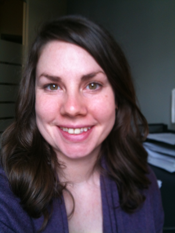- How did you learn about the program and what motivated you to enroll?
-
My postdoctoral supervisor suggested it to me – my PhD work was qualitative, and I’m interested in doing more mixed-methods and quantitative research using administrative data so it seemed like a good fit. The fact that it was online and I could take the courses at my own pace was an additional motivator.
- Tell us about your course experience. What skills did you develop and which courses provided the greatest benefit to you?
-
I developed a number of skills, most importantly in working with administrative data and statistical analysis. The evaluation course was probably the most useful as it is something I’d like to incorporate into my future research much more.
- How have you been able to (or how do you plan to) apply your new skills in your work/research?
-
I am currently planning an evaluation of a health program that will include using administrative data, so hopefully it will give me plenty of opportunity to use the skills I’ve developed.
- What do you think were the strengths of this program? Please provide examples.
-
The flexibility of timing due to the entirely online nature of the program stood out to me. I could work on things when I had the time, which I think is a great feature for people who are generally working full time. I also liked the mix of discussion and individual assignments in the courses; getting to hear others’ opinions and experiences was very useful.
- Would you recommend this program to others? If so, what recommendations/suggestions would you give those interested in applying to this program?
-
Yes, I would recommend this program to others, although I would definitely suggest only taking one course at a time. Even working only part time, taking two courses at once was a bit much.

